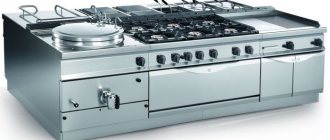Definition and classification
Food products are food products that people consume.
Each group has an identification number, which is approved by the Sanitary and Epidemiological Supervision Authority. If a store does not have a mandatory list of goods, then it cannot be called a grocery store, and a fine of 100 minimum wages is possible. Compliance with this norm is mandatory.
Collection of Trading Rules with Penalties with amendments and additions for 2020
All food products have groups and are divided according to direction:
Table 1.
| Food group of goods | Products |
| Bakery products | Grain segment, cereals, pasta, bread |
| Fruit and vegetable products | Vegetables, fruits, greens |
| Confectionery products | Baked goods, sweets, cookies |
| Wine and vodka group | Alcohol |
| Fermented milk products | Milk, kefir, mayonnaise, sour cream, cottage cheese, cheese |
| Meat and fish products | Products that contain meat or fish |
| Edible fats | Plants and animals |
| Egg product | Eggs and dry substitutes |
| Tobacco products | Cigarettes, cigars |
The organization has the right to trade products, but in accordance with the requirements for 2020. They are regulated by regulatory documentation based on Federal Law No. 52.
Implementation Features
Food retail has its own peculiarities. The list of services can be divided into three points:
- The seller provides assistance to the buyer in selecting products and information on their use.
- Consultation and provision of necessary documentation.
- Creation of amenities.
A store employee is required to accept orders and organize their execution. Each group of retail goods has its own list of sales conditions.
Watch the video: “Food Seller”
Bakery products
This type of product is sold over the counter or self-service. A citizen of the Russian Federation has the right to choose the products he likes and then go to the checkout. When a product expires, it must be returned to the supplier.
If the weight of the bread is more than 400 grams, then it is allowed to be cut and packaged, but only if the bakery product arrived at the retail outlet without original packaging.
Meat and sausage products
The meat, before being displayed on display, is cleaned and chopped into pieces. The bird must be sold as a whole carcass or cut into several parts. Individual elements, such as paws and offal, must be distributed evenly. Sausage is sold in packaged units or in cut-off versions.
Vegetables and fruits
An individual entrepreneur is obliged to sell vegetables and fruits in packaged and weighed form. Each package must have a price tag with a barcode, which informs the buyer about the cost of the goods, weight and packing date.
In some cases, products are weighed in front of the client. Packaged merchandise should sell out the same day.
Milk products
Cheese, butter and curd products must be wrapped in parchment or other material that meets sanitary standards. The seller must touch the products only with gloves.
Bee products
Honey and other beekeeping products must be sold in accordance with the law on mandatory veterinary and sanitary examination, which is carried out in laboratories. This rule applies to both individuals and legal entities.
Basic provisions of the law
The following cannot be sold from trays and kiosks:
- any alcohol on tap;
- chilled and frozen products (in the absence of refrigeration equipment);
- poor quality and contaminated goods;
- ice cream without packaging.
It is also unacceptable to mix types of goods - serving food and household chemicals in one kiosk.
More restrictions are provided for trading from carts, hands, vehicles, containers and tables. Since these outlets practically do not have the necessary equipment, it is prohibited to sell more types of products using them:
- pickles, jam, canned meat, fish;
- bakery products (except for crackers and bagels packed at the factory in paper or plastic bags);
- dairy products;
- meat, poultry, offal, fish (including preserves, semi-finished products, caviar);
- cheese, sausage, pates, bacon;
- mushrooms;
- weighted goods: cookies, waffles, gingerbread biscuits, sweets and chocolate without wrapper;
- vegetable oil and groceries.
Rules for trade in alcoholic beverages from January 1, 2020
Trade in alcoholic beverages is possible if you have the appropriate certificate. Excise stamps must be of state standard. Product authenticity can be verified online using a cellular device. If a trade enterprise is not connected to the system, then from January 1, 2020 it may be fined.
Basic rules for the sale of alcoholic beverages, as amended:
- Internet sales are prohibited.
- If the goods are home-made, then retail or wholesale sales are allowed if the products were produced on registered equipment.
- Selling alcohol is allowed from 11 a.m. to 10 p.m.
If the supplier presented a product whose invoice was drawn up in violation, the retail outlet does not have the right to accept the product until the document is corrected. An act of non-compliance is also drawn up. In case of such a violation, the supplier and customer are fined.
Conditions for trade pavilions
Any premises must be owned by an individual entrepreneur or leased.
At the legislative level, additional requirements are established:
- If the store is located in a residential building, then the entrance is equipped separately.
- The retail premises must be kept in order, and equipment must be securely attached so that there is no threat to the life and health of customers.
- Compliance with sanitary standards and instructions of Rospotrebnadzor.
- The pavilion must have a well-groomed appearance and be equipped with convenient access and a ramp. For elderly people or people with limited mobility to visit the store, the steps should be low and the stairs should be equipped with railings.
- Compliance with fire safety regulations. The evacuation plan in case of fire is located in a visible place.
- Availability of a consumer corner with a list of necessary documentation.
- Food is displayed in display cases and is available for inspection. Price tags must be present on each product, which detail the name and main characteristics.
- The finishing of the premises is made from non-combustible materials.
Note: grocery store sellers are required to wear aprons and caps and have medical books with mandatory marks.
Emerging nuances
Provisions on procedures for the sale of food products are prescribed in many regulations and are subject to mandatory compliance by all sellers.
In this section, we will tell you what sanitary standards and requirements for premises must be strictly observed by organizations and private entrepreneurs who trade in food products.
How to get a loan for an individual entrepreneur, see the article:. How to legally avoid paying a loan to a bank, read here.
We will also describe the rules for trading food products in the Russian Federation and penalties for non-compliance, and what the consequences are for violators.
Sanitary standards
Strict compliance with sanitary and hygienic standards is an indispensable condition for conducting commercial activities in the field of sales of food products.
These standards regulate the location of retail establishments, the layout of areas and sales floors, the availability of technical equipment, appropriate working conditions for sellers, storage of products, sales of food products and other nuances.
Particular attention is paid to stores that sell raw materials and food products; more stringent requirements are applied to them in accordance with the rules and regulations of SP 2.3.6.1066-01.
The main act regulating the rules for stores and facilities selling food products is SanPiN No. 2.3.5. 021-94, which contains standardized norms of other regulatory documents in this area.
Standards and requirements have been developed for all enterprises engaged in trade in food products - warehouses, sales bases, storage facilities, retail and wholesale stores.
New facilities can be put into operation only in agreement with Rospotrebnadzor.
Let's look at the main prohibitions for food stores:
| Placement of areas for trade in fishery products | Over 1 thousand sq.m. in residential buildings on the first and ground floors |
| Unloading goods under windows or near the entrances of residential buildings | Such actions can only be performed from the end of the building, where there are no windows, or from the entrance side |
| Night delivery, loading of goods into stores located in residential buildings | In the event of complaints from residents, inspection authorities may visit the store, and if actual violations are detected, penalties may be imposed. In case of gross violations, Rospotrebnadzor may suspend the store’s activities or close it |
Object requirements
Enterprises engaged in the retail trade of food products are also subject to requirements for the maintenance and equipment of premises, warehouse space and sales areas.
For example, all equipment and equipment in a store must be accompanied by certificates of conformity, and the store itself must be equipped with convenient driveways for trucks and pedestrian paths for customers.
Also, the store should create conditions for disabled people and people with limited mobility, because they should also be able to get into the store with a minimum of effort.
For this purpose, ramps, convenient stairs or ramps for wheelchairs should be equipped at the entrance.
The main task for stores when trading food products is to ensure the safety of consumers indoors.
It is for this reason that all organizations and entrepreneurs must strictly comply with the requirements and standards regarding the equipment of retail premises in the process of retail sales of food products.
Video: rules for displaying goods So, the store must have an external sign with the name of the enterprise. As for the internal organization of the premises, it must contain guidelines for buyers indicating departments or sections.
There should also be a price list and price tags for goods in each department of the store. There should be a consumer corner with basic information that the buyer may need.
If the pavilion sells raw meat, then a poster about cutting meat carcasses into grades should hang in a visible place.
Each store should also have cash register equipment with the ability to issue a receipt to customers, which will serve as proof of the purchase of goods in a particular store.
In 2020, the following requirements are put forward for product price tags:
| Products packaged in stores must have tags | With name, weight and cost |
| Similar information should be contained on the packaging | At the same time, all information should be easy to read and legible. |
| Mandatory presence of scales in the store | As well as a control measuring device that every buyer can use |
| Products with defects | Or damaged ones must have appropriate inscriptions |
By following all the requirements and standards for retail stores, an enterprise can prevent unscheduled inspections by Rospotrebnadzor and the identification of oversights that can lead to serious consequences, including significant fines and termination of the store’s activities.
Features of selling different groups
Stores selling food products are obliged to provide appropriate conditions for consumers so that they have the opportunity to choose the necessary and suitable product in all respects.
Therefore, different requirements are put forward for the sale of different groups and categories of food products.
The consumer must receive comprehensive and truthful information regarding the following parameters:
- correct and complete name of the product;
- manufacturer with his address;
- documentation as confirmation of product compliance with quality standards;
- information about the properties and characteristics of products;
- storage and use rules;
- shelf life;
- product price;
- information about defects or expiration dates.
Upon first request, the buyer must be provided with accompanying documentation for the goods, that is, certificates, regulatory and technical papers, documents on the quality of the goods.
Excise or licensed goods must have appropriate licenses.
For certain groups of food products and products in the sales area, certain conditions must be created, temperature conditions for storage, the availability of refrigeration equipment and other things.
This is done to ensure that each product is in proper storage conditions until it is sold.
Food trade rules for individual entrepreneurs
Depending on the groups of food products that the entrepreneur sells, certain legal requirements must be observed.
So, if fresh food products are traded, then the store must be equipped with a ventilation system, storage facilities, appropriate temperature and humidity conditions, and no natural light or direct sunlight.
Food products should be separated into departments depending on placement rules.
It is prohibited to store some products nearby, so when setting up a store you need to think through all the smallest nuances.
Product Return Procedure
The buyer has the right to refuse to purchase a particular product. This right is regulated by federal law.
Objective reasons for returning food products:
- the expiration date has expired;
- inaccurate information on the label or its inconsistency with the contents;
- the presence of foreign impurities or insects in the product.
The client is always right; if there are obvious violations, then the law will be on his side.
When returning goods, the buyer has the right:
- replace products;
- demand a refund;
- agree to a company discount.
If the claims are subjective, then the retail outlet has the right to refuse to return or replace the product. Once a receipt for payment has been issued, products of the correct type cannot be returned. The client is required to provide evidence of a defective product. In case of disagreement, the item may be sent for independent examination.
Evidence of correctness may be the following:
- information on the packaging;
- type of product after opening;
- CCTV Cameras;
- discrepancy between the article and accompanying documentation;
- without a receipt of payment, evidence of purchase may be provided by witnesses.
Claim
The buyer has the right to write a statement and if the company refuses to return it, it can be sent to higher authorities. The claim is made in free form. It can be written with a simple ballpoint pen or typed on a computer.
Key points of the statement:
- Write the name of the organization, address and details of the manager or owner of the point.
- The essence of the complaint.
- Customer details and contact information.
The claim must be written without errors or abbreviations in legible handwriting. The description details the time of purchase, the reason for the return and additional relevant points. When and under what circumstances the purchase was made and the essence of the violation. All product defects and possible witnesses are indicated. At the end the date and signature of the client are affixed.
The document must be executed in two copies. One is handed over to the head of the enterprise, and on the second the responsible employee is required to make a note that the claim has been accepted for consideration.
If registration of a complaint is refused, the buyer can file a complaint with the regulatory authorities and draw up an act of violation of rights. In this case, it is necessary to have two witnesses. You can resort to this method if there is no response to the complaint from the store after 30 calendar days. You can contact Rospotrebnadzor or the Consumer Rights Protection Society. Most often, such disagreements end in litigation.
Seller's obligations
A food kiosk seller has a range of rights and responsibilities that are specified in the job description:
- Transfer the paid goods to the buyer.
- Products must be of appropriate quality and packaged.
- Check the expiration date of the product.
- The transfer is carried out with all precautions.
- Alcohol and tobacco products are not sold to persons under 18 years of age.
- Product documentation, if available, is transmitted.
- Responsibility to comply with sanitary standards.
- It is prohibited to carry out actions that could harm the life and health of the consumer.
If the seller knowingly knows that the product does not meet the quality, then he may be held liable, which will be considered an administrative violation. It implies a fine or community service.
If a cash register is not provided at a retail outlet, then at the consumer’s request, the seller is obliged to issue a sales receipt.
Information for clients
List of documents that should be located in the “consumer corner”, at the employee’s workplace and be available for reading by the client:
- A copy of the state registration certificate, certified by the director or owner of the enterprise.
- Copy of OGRNIP.
- Permit to trade.
- Conclusion from the Sanitary and Epidemiological Supervision Authority of the Russian Federation that sanitary standards have been met.
- Booklet on protecting the rights of buyers.
- Provisions on administrative violations.
- Rules for the sale of certain types of products.
- Contact information about the company, including telephone numbers and full names of management employees.
- A journal recording inspections by regulatory authorities.
- Work schedule.
- Log of feedback and suggestions. It must be stitched, and all sheets must be numbered.
- Emergency evacuation plan.
- A fire safety training log for employees, which must contain employee signatures.
- SanPiN rules regulating retail trade.
- List of services.
- Terms of service and features of the organization.
- Advertising about discounts and promotions.
Note: some of the listed documents may be stored next to the cash register, but must be provided to the client upon request or in case of inspection by government authorities.
What information should be on the packaging?
The GOST R 51074-2003 standard states in detail all the points that must be written on the packaging of products.
Features of the sale of food products:
- Product name and legal name and address of the manufacturer.
- Compound.
- Nutritional and energy value.
- Date of manufacture and shelf life.
- If the product does not contain GMOs, natural or dietary.
- Dietary supplements, dyes and “E” is an abbreviation.
- The date of packaging and weight are indicated on the packaged product.
If the product is not domestically produced, then the label must be original. If the information on the label is in a foreign language, then there must be an additional sticker with a translation of the text.
Rules for the sale of food products
Rules for the sale of food products
The rules for the sale of food products are regulated by the Civil Code of the Russian Federation, the Federal Law “On the Quality and Safety of Food Products”, the Law of the Russian Federation “On the Protection of Consumer Rights”, as well as the Rules for the sale of certain types of goods (approved by Decree of the Government of the Russian Federation of January 19, 1998 No. 55 ).
The seller is obliged to bring to the attention of the buyer the company name (name) of his organization, its location (address) and operating hours, placing the specified information on the organization’s sign. The seller, an individual entrepreneur, must provide the buyer with information about state registration and the name of the body that registered him.
If the activity carried out by the seller is subject to licensing, then he is obliged to provide information about the number and validity period of the license, as well as about the authority that issued it. This information is placed in places convenient for the buyer to review.
The seller must have the necessary premises, equipment and inventory that, in accordance with the legislation of the Russian Federation on technical regulation, ensure the preservation of the quality and safety of goods during their storage and sale at the point of sale, appropriate trading conditions, as well as the ability for buyers to correctly select goods. When carrying out its activities, the seller is obliged to comply with the mandatory requirements for the organization and implementation of trading activities established by regulatory legal acts of the Russian Federation.
!It is important to note that in accordance with Art. 3 of the Federal Law “On the Quality and Safety of Food Products” food products, materials and products that:
- do not comply with the requirements of regulatory documents;
- have obvious signs of poor quality that do not raise doubts among representatives of the bodies exercising state supervision in the field of ensuring the quality and safety of food products (hereinafter referred to as the state supervision bodies) when checking such products, materials and products do not correspond to the information provided and in relation to which there are reasonable suspicions about their falsification;
- do not have established expiration dates (for food products, materials and products for which the establishment of expiration dates is mandatory) or whose expiration dates have expired;
- have markings containing information required by law or regulations, or for which such information is not available.
The seller is obliged to have and maintain measuring instruments in good condition and to carry out their metrological verification in a timely manner and in the prescribed manner.
In order for the buyer to check the correctness of the price, measure and weight of the purchased goods, appropriate measuring equipment must be installed in an accessible place on the sales floor.
The seller is obliged to have a book of reviews and suggestions, which is provided to the buyer upon his request.
The seller is obliged to ensure the availability of uniform and clearly written price tags for the goods sold, indicating:
- product names;
- variety (if available);
- prices per weight or unit of goods;
- signature of the financially responsible person or seal of the organization;
- date of registration of the price tag.
Information about food products must necessarily contain:
- Name of product;
- location (address) and brand name (name) of the manufacturer;
- expiration dates;
- name of ingredients included in food products, including food additives;
- information about nutritional value (calorie content of the product, content of proteins, fats, carbohydrates, vitamins, macro- and microelements), weight or volume;
- purpose, conditions and scope of application (for children's products, dietary foods and dietary supplements);
- methods and conditions of preparation (for concentrates and semi-finished products) and use (for baby and dietary food products);
- storage conditions (for goods for which mandatory requirements for storage conditions have been established);
- date of manufacture and date of packaging of the goods;
- contraindications for consumption in case of certain types of diseases (for goods, information about which must contain contraindications for consumption in case of certain types of diseases);
- information on state registration (for food products subject to state registration).
Before they are delivered to the sales floor or other place of sale, goods must be freed from containers, wrapping and binding materials, and metal clips. Contaminated surfaces or parts of the product must be removed. The seller is also obliged to check the quality of the goods (by external signs), the presence of the necessary documentation and information on them, and carry out the rejection and sorting of the goods.
Non-industrial food products sold in food markets are subject to sale after a veterinary and sanitary examination with the issuance in the prescribed manner of a veterinary certificate (certificate) of the established sample, which must be presented to the buyer upon his request.
Organizations engaged in the retail sale of alcoholic products, before serving alcoholic products on the sales floor, check the authenticity of federal special stamps and excise stamps visually, as well as using access to the information resources of the Federal Service for Regulation of the Alcohol Market.
In the case of pre-sale packaging and packaging of loose goods produced by the seller, the volume of packaged goods with short shelf life should not exceed the volume of their sales during one trading day.
The packaged goods indicate:
- Name;
- weight;
- price per kilogram;
- plumb line cost;
- packing date;
- best before date;
- number or surname of the weigher.
When selling food products packaged and packaged by the manufacturer with the weight indicated on the packaging, they are not additionally weighed.
Weighted food products are transferred to the buyer in packaged form without charging additional packaging fees.
The price of food products sold by weight is determined by net weight.
At the buyer's request, gastronomic goods can be sold to him in sliced form.
Bread and bakery products weighing 0.4 kg or more (except for products in the manufacturer's packaging) can be cut into 2 or 4 equal parts and sold without weighing.
Bread and bakery products are sold in small retail outlets only in packaged form.
In places where food products are sold, related non-food products may be sold and public catering services may be provided. At the same time, trade in related goods and the provision of public catering services should not lead to a deterioration in the quality and safety of food products and the conditions of their sale.
Sanitary standards
The standards are described in SanPiN 2.3.5.021-94 and have several subsections:
- Territory requirements. Convenience of location and visiting the organization.
- Water supply, ventilation, lighting and sewerage must be present.
- Food should be stored in appropriate equipment at a comfortable temperature.
- Equipment and utensils must be sterilized.
- Food products are stored in accordance with standards and have documentation.
- The release of food products must be carried out without violations. Sellers are not entitled to sell expired goods.
- Hygiene and regular disinfection. Daily wet cleaning. Once a month there is a sanitary day.
- Re-freezing of thawed goods is prohibited.
- Clean equipment at least once a week.
- Transportation of food products according to established standards.
During the inspection, sanitary service employees check compliance with all points. In addition, the sanitary and medical records of the organization’s employees are checked.
What rules for trade in food products are established in the Russian Federation for 2020?
Entrepreneurs who decide to start selling food products need to carefully prepare for opening such a business. In addition to establishing business connections with counterparties, you should study the rules for trading food products and special requirements for premises for sale. Let's look at what you need to know about regulations and how to organize points of sale in 2020.
Legislation
General provisions for interaction with the buyer are regulated by special law of the Russian Federation No. 2300-1 of 02/07/1992.
Decree of the Government of the Russian Federation No. 55 of January 19, 1998 provides for the refusal to replace food and non-food products of proper quality from among consumer products.
Services provided by trading enterprises are provided for by GOST 51304-2009.
Sanitary rules - SanPins 2.3.5.021-94, 2.3.6.1066-01 establish the main aspects of storage, reception, layout of food products and food raw materials.
Requirements for a person selling food products
Legal entities of any form of ownership and individual entrepreneurs are allowed to sell consumer goods on the territory of the Russian Federation.
The certificate of state registration of the enterprise and registration with the tax office is placed in a prominent place in the store, trade pavilion, usually in the consumer's corner, along with information about opening hours, legal address, place for filing complaints about the quality of goods, and staff service.
Important: activities selling food products are not subject to licensing. However, if an enterprise decides to sell tobacco products or alcoholic beverages, it must undergo a licensing procedure.
Regardless of the type of owner, trade organizations must have production control - supervision over the implementation of sanitary rules and safety standards.
Rules for organizing the premises
The premises that are planned to be used as a store must meet certain parameters:
- If a retail outlet is located inside a residential building, office, or medical institution, it does not violate living, working, or rest conditions;
- The store can be located inside a separate building, outbuildings and built-in premises, except for special fish and vegetable retail outlets, which are prohibited from being located inside residential buildings;
- Unloading of food must be provided at the end of the building without windows if the store is located in a residential building;
- When the retail network is non-stationary, there are requirements for placement near equipped toilets;
- Stationary points must have uninterrupted water supply and sewerage;
- Sewage pipes should not pass over the places of reception, storage and pre-sale preparation;
- Stores are equipped with toilets for staff, where handwashing sinks are located, with a floor area of more than 1000 square meters. m. bathroom is provided for buyers;
- Entrance areas are equipped with special means for the movement of people with disabilities;
- Heating and ventilation are required;
- Lampshades in warehouses and sales areas are installed with protection from splinters.
These are not all the basic rules for organizing premises for a retail store. Compliance with the necessary parameters is checked by the Rospotrebnadzor unit.
How should goods be laid out correctly in a grocery store?
The range of goods is approved by Rospotrebnadzor; unauthorized changes in the nomenclature are prohibited.
A grocery retail store must comply with the rules for the sale of certain types of goods. Thus, perishable products are placed inside refrigeration equipment not only during storage, but also for direct sale inside the sales area. Such products are provided with a label with storage conditions and expiration date.
Important: suppliers provide certificates for all perishable goods, storage is carried out until the end of the expiration date. Consumers have the right to request accompanying documents for review.
The layout of food products by store employees plays an important role. Regulatory acts require the provision of display of products in a marketable form, convenience, opportunity to consider, as well as grouping by types and types. There is a concept of “commodity proximity”, when products are placed next to others if they do not affect each other in any way (odors, pollution).
Raw products, semi-finished products and finished goods should be sold in different departments.
Important: Grocery stores have the right to sell related non-food products along with food products, as well as provide catering services. Expanding the profile of a trading enterprise should not affect the main activity - the sale of high-quality and safe food products.
Is it possible to return food products?
A characteristic feature of the sale of food products is the absence of a rule on returning quality products to the store. If the purchased food is of proper quality, the packaging is not damaged, and the appearance is preserved, then after receiving the receipt at the checkout, the retailer will not accept the product back from the consumer.
Another option is provided for the sale of low-quality food products: the store is obliged to accept the sold products, replace them with similar ones of proper quality, or return the money paid.
Responsibility for violating the rules
Violators of prohibitions established by law and rules of trade in food products face administrative liability under Art. 14.15. Code of Administrative Offenses of the Russian Federation. For detected violations, liability is provided - a fine in the amount of:
- Citizens – 300-1500 rubles;
- Legal entities – 10,000 – 30,000 rubles.
Moreover, punishment for retail sale of alcohol with violations entails a separate punishment under Art. 14.16. From the point of view of the legislator, such an offense deserves greater punishment, since it causes greater harm to the health of the population.











